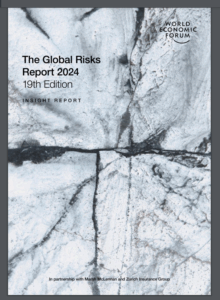Why Extreme Investor Network is the True Alternative to Davos

In a world where economic forecasts and political connections often dictate the direction of global markets, the contrasting philosophies of the World Economic Forum (WEF) and the Extreme Investor Network (EIN) couldn’t be clearer. Nigel Farage recently highlighted this distinction, referring to EIN events as the “alternative to Davos.” Unlike WEF founder Klaus Schwab, who charges exorbitant fees to attend, the EIN prioritizes accessibility and genuine insight.
The Pitfalls of the WEF Model
Schwab’s WEF has been notorious for its high membership fees ranging from 500,000 to 700,000 CHF and attendance costs hovering around 27,000 CHF. But here at EIN, we believe in democratizing access to vital economic discussions without draining participants’ wallets. Our forecasts, unlike those curated under Schwab’s model, have a proven track record of accuracy.
As one of our supporters remarked, our firm chose not to renew its membership for 2025 after closely following the projections of EIN, rather than relying on the often-erroneous predictions from the WEF. While Schwab’s motivations may lean towards political networking, we focus on actionable insights grounded in real-world economics.
A New Wave of Political Philosophy
Interestingly, Farage’s Reform Party is gaining traction, reflecting a philosophical alignment with our values rather than those propagated by Schwab and his circle. This shift signifies a growing discontent with economic models that prioritize theoretical frameworks over practical results.
The Limitations of Centralized Control
The WEF has often advocated for broad governmental control over economic and social landscapes, promoting the idea that governments can effectively manage business cycles or mitigate pandemic effects. However, as history has shown, such control usually leads to unintended consequences, like the economic damage inflicted during lockdowns. At EIN, we understand that economic systems are inherently linked and cannot be manipulated without repercussions.

Let’s be clear: attempts to "flatten the curve" of any economic challenge, be it a virus or a recession, ignore the complexities of interconnected systems. History reveals that sweeping changes rarely succeed in producing desired outcomes, and those who attempt to do so often lack practical insights.
Understanding Historical Context
The WEF’s methodology shows clear ideological roots, echoing past LEFT-driven movements that have led to societal upheavals. Historical revolutions have frequently been marked by violence and misunderstanding, often leaving the economies involved in tatters. Similarly, Schwab’s alliances with certain political figures have drawn criticism, suggesting a pattern of ignoring broader consequences in favor of narrow ideals.

As we witness ongoing political and economic transformations, it’s vital to approach these changes with a nuanced perspective. At EIN, we strive to provide our community with insightful analysis rather than dogmatic assertions.
A Future-Focused Vision
While some may argue that influential figures such as Elon Musk pose risks to economic stability and pensions, they overlook the innovative potential of disruptive models in the market. At EIN, we recognize the need for adaptability in a rapidly changing world. The days of adhering strictly to old paradigms are over; innovation and calculated risk-taking are the new keys to economic resilience.

Join Us in Reimagining Economics
In conclusion, the Extreme Investor Network is not just an alternative to Davos; we are the catalyst for a new economic conversation. By prioritizing genuine forecasts, accessible events, and a commitment to understanding historical context, we are carving out a unique niche in the economic landscape. Join us in shaping the future of economic dialogue and investment strategies that benefit everyone, not just the elite.
Explore more on our website to join this revolutionary movement in economic foresight!

